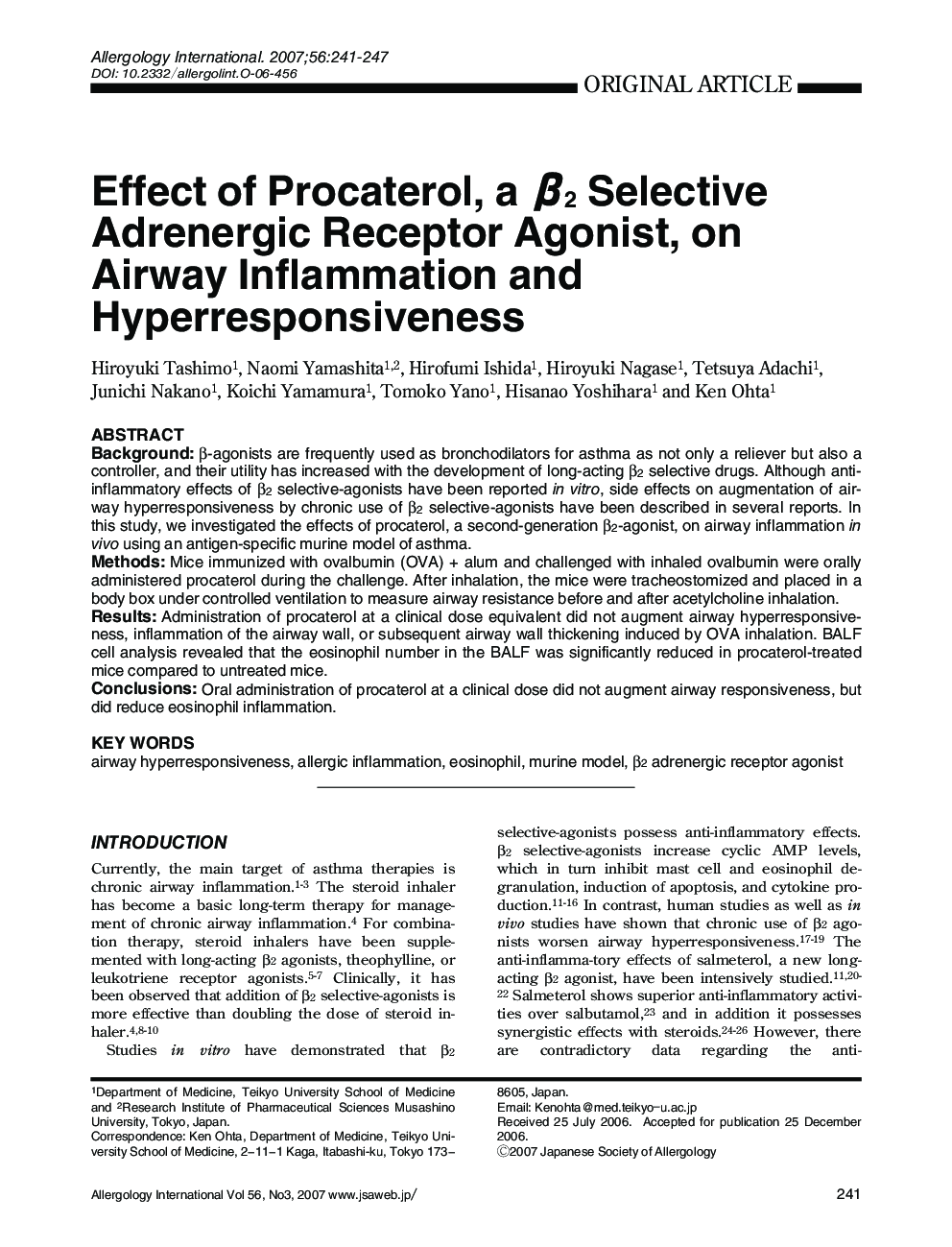| Article ID | Journal | Published Year | Pages | File Type |
|---|---|---|---|---|
| 3341198 | Allergology International | 2007 | 7 Pages |
ABSTRACTBackgroundβ-agonists are frequently used as bronchodilators for asthma as not only a reliever but also a controller, and their utility has increased with the development of long-acting β2 selective drugs. Although antiinflammatory effects of β2 selective-agonists have been reported in vitro, side effects on augmentation of airway hyperresponsiveness by chronic use of β2 selective-agonists have been described in several reports. In this study, we investigated the effects of procaterol, a second-generation β2-agonist, on airway inflammation in vivo using an antigen-specific murine model of asthma.MethodsMice immunized with ovalbumin (OVA) + alum and challenged with inhaled ovalbumin were orally administered procaterol during the challenge. After inhalation, the mice were tracheostomized and placed in a body box under controlled ventilation to measure airway resistance before and after acetylcholine inhalation.ResultsAdministration of procaterol at a clinical dose equivalent did not augment airway hyperresponsiveness, inflammation of the airway wall, or subsequent airway wall thickening induced by OVA inhalation. BALF cell analysis revealed that the eosinophil number in the BALF was significantly reduced in procaterol-treated mice compared to untreated mice.ConclusionsOral administration of procaterol at a clinical dose did not augment airway responsiveness, but did reduce eosinophil inflammation.
